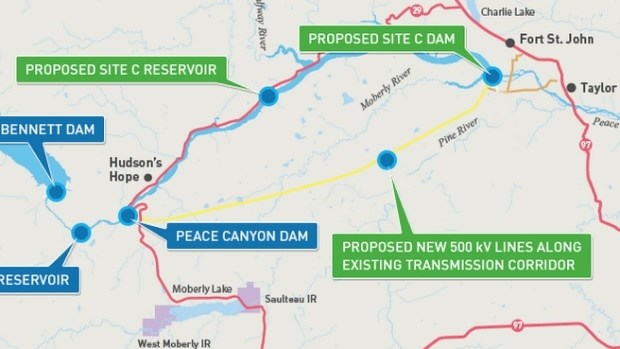Three days after British Columbia Premier John Horgan announced that the government will proceed with the Site C electrical dam on the Peace River, Bowen Islander Wendy Holm says she’s still in shock.
As a professional agrologist, Holm has been involved with assessing the impact of the Site C Dam since the 1980s, and in 2014 she presented two years worth of analysis on agricultural impacts of the dam to the Joint Review Panel.
“When you work so hard for so long on something, you’ve got to be optimistic so yes, I am in shock,” says Holm. “Site C is a dinosaur, and the Peace Valley could be a model for sustainability with wind, solar and agriculture. In their justification for going forward, the government said that ninety-nine percent of Class 1 - 5 agricultural lands will not be affected by Site C. The analysis they’re presenting, its alternative facts and agriculture minister Lana Popham has got to know that the combination of soil and climate makes the land that will be flooded some of the best agricultural land in Canada. This justification is extremely disingenuous.”
Holm adds that she sees the West Moberly and Prophet River First Nations, both of whom she’s worked with closely over the years, launching a major lawsuit. She adds that her fight against this dam is not over either.
“I saw this John Lennon quote that says, Everything will be okay in the end, if it’s not, its not the end, and that’s how I see this situation.”
Islander Jae Mather is the Executive Director of Clean Energy BC. He says that while his organization is not necessarily in favour of Site C, they are approaching the issue pragmatically.
“Electrification is a word everyone in British Columbia needs to get used to if we’re going to hit our carbon reduction targets,” says Mather. “Whether or not our politicians can see it - it’s coming. Pepsi has just ordered 100 electric big rigs from Tesla, and Shenzhen, China, is all set to have the world’s first electric bus fleet. The electrification of transportation is just part of the picture: the LNG industry in North Eastern BC will require the equivalent amount of energy as Site C right there,” says Mather. “Right now, two-thirds of this province’s energy comes from fossil fuels, and this is part of the transition.”
Mather says he sees Site C, and what happens afterwards as a huge litmus test for the government.
“If the Green-NDP alliance can’t find a path for the transition off fossil fuels, no one can,” says Mather. “And if they find that path, and they are serious about it they better make it legislation so that the next government that comes along can’t scrap it.”
He adds that using wind, solar, tidal energy and run of river would be a faster and more flexible transition off fossil fuels, and it would also benefit more of BC economically.
“But ultimately, the best thing to do is get on with it, make a decision and find the best way forward.”



